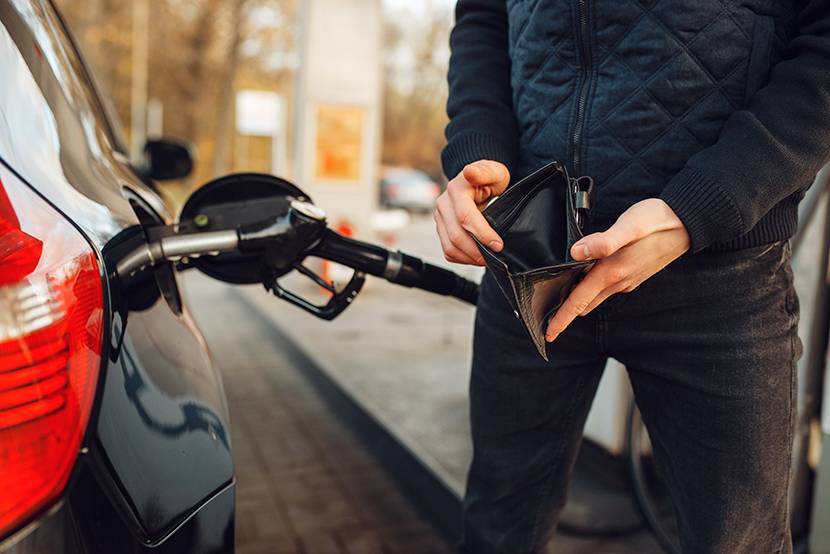In 2023, the government revealed that some supermarkets didn’t reduce the cost of fuel at the pump in line with the cost of wholesale prices. This meant customers were paying more than they needed to for fuel. We look at what the government is doing about this and what it means for drivers and their money.

Why were fuel retailers charging too much for fuel?
This could be due to a couple of reasons. An investigation by the Competition and Markets Authority (CMA) found that supermarkets were charging motorists an extra 6p per litre for fuel. This totalled £900 million in extra costs to drivers and that’s only in 2022.
Organisations have accused these fuel retailers of charging more to customers just to make a profit. The Petrol Retailers Association - who represents independent forecourts and has a significant share of the fuel market, commented on the report.
Executive director, Gordon Balmer said:
“The Petrol Retailers Association welcomes the Government’s commitment to transparency and will support any sensible steps taken to help motorists find the best deal available to them.
“We will continue to engage with officials to ensure that this scheme is rolled out efficiently. The logistics surrounding fuel pricing are complicated and it is vital that the government consult with industry to ensure a smooth implementation.”
What’s the government doing to stop rip off fuel retailers?
There’s going to be ‘tough new powers’ that target retailers who try to unfairly increase the price of fuel.
The competition and markets authority (CMA) are going to closely monitor fuel prices and report any signs of price hiking to the government. The government thinks this could help to improve competition in the market and make sure people aren’t charged unfairly at the pump.
It’s also going to be a legal requirement for fuel retailers to share their daily fuel price information. It’s currently working on an ‘open data scheme’ where fuel retailers share fuel prices, the first phases of this should start in autumn 2024.
The government is intending to make sharing this data a legal requirement. And if retailers don’t comply with these new regulations they could get a fixed fine of 1% of their worldwide turnover, or an ongoing fine of 5% of their daily turnover.
For now though, the CMA asked retailers to share their fuel pricing voluntarily so companies can use this data to compare fuel prices for consumers. This is a temporary scheme until the government and the CMA decide on the laws and legislation.
Some of these fuel retailers that have shared their fuel pricing data are:
- Applegreen UK
- Ascona Group
- Asda
- bp
- Esso Tesco Alliance
- JET Retail UK
- Morrisons
- Moto
- Motor Fuel Group
- Rontec
- Sainsbury’s
- SGN
- Shell
- Tesco
You can find out more about these retailers and the price of their fuel at GOV.UK.
Energy Security Secretary Claire Coutinho said:
“At a time when many were struggling with increased living costs, we saw shocking behaviour from some fuel retailers who failed to pass on savings at the pump.
“Now we are cracking down on any petrol station bosses found to be unfairly hiking up their prices.
“That’s why we’re giving the CMA new powers to bring fairness back to the forecourts and make sure UK drivers get a competitive fuel price.”
Is the government plan to tackle rip off fuel retailers working?
The CMA has already started investigating fuel retailers and issued a fine. Last year, the organisation published a report on the road fuel market.
It found that competition has weakened on fuel pricing since 2019, this means drivers are paying more for fuel regardless of the price of wholesale fuel prices.
It also issued a fine to Asda for £60,000 after the supermarket didn’t cooperate with the CMA investigations.
With more transparency on the prices that retailers are charging, it could mean motorists are paying more competitive prices for their fuel.
What can drivers do to find the cheapest fuel near them?
The government hasn’t released its fuel comparison tool yet, but in the meantime you can use our fuel prices tool to find the cheapest fuel near you. You can also use our tips to make your fuel last longer.
"Motorists are facing so many costs at the moment. Car insurance prices have increased by 58% in the last 12 months, with the average price reaching £995. So the last thing they need is to pay more for fuel than they need to.
"The new regulations from the government seem to be a good step forward for motorists. A more transparent view on fuel pricing means the CMA can stop any fuel retailers who are hiking up prices unnecessarily. It also means there's more chance for drivers to shop around and find the best fuel costs near them.
"You can find the cheapest fuel near you with our fuel prices tool. Enter your postcode into our tool and you can find your cheapest local station."
What our motor insurance expert says



